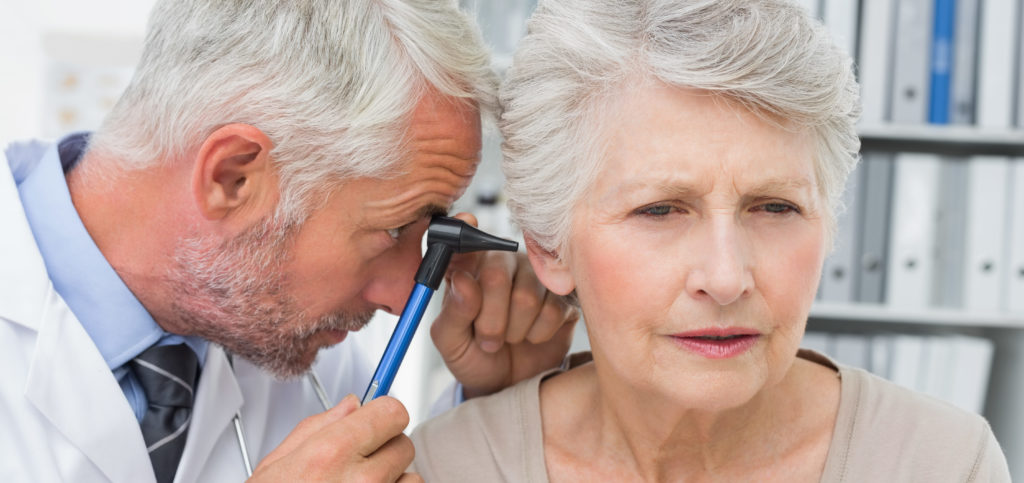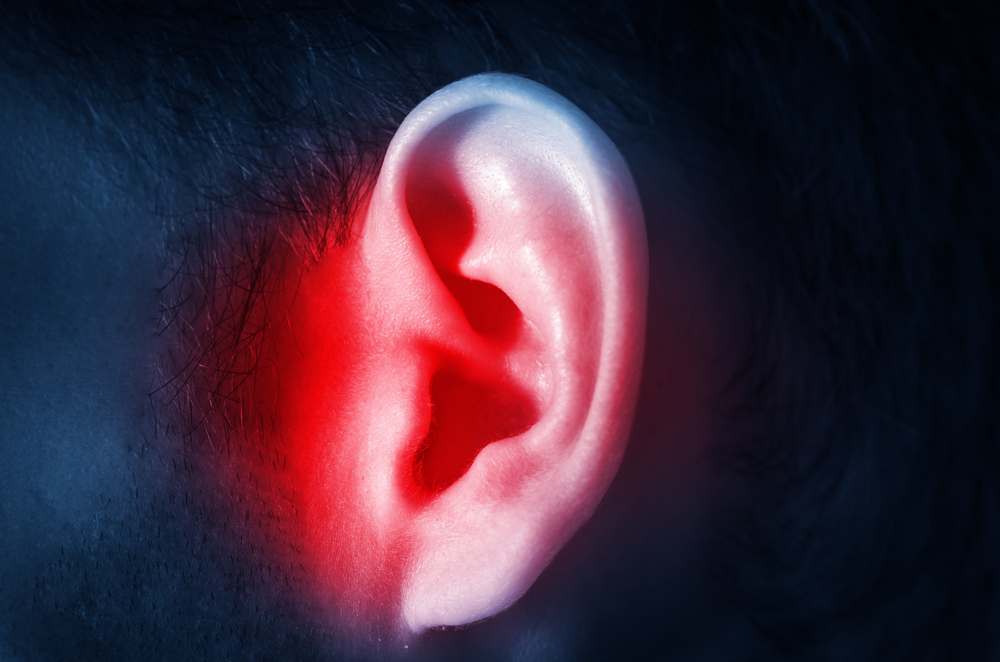
Ear diseases and symptoms
There are four types of hearing loss; conductive hearing loss If you are experiencing hearing loss, deafness, and other communication issues, the root cause could be an ear disease. With the inner ear, middle ear, and outer ear all prone to disease and infection, a variety of diseases could be the cause of your hearing problems, dizziness and other ear symptoms.
Symptoms of Ear Diseases
Ear diseases can manifest themselves in a variety of ways with symptoms including:
- Communication disorders such as deafness and inability to understand speech
- Balance disorders and feelings of dizziness
- Pain and discomfort with change in air pressure
- Pain and discomfort in your ear, nose and throat
- A feeling of “fullness” in your ear

What Causes Ear Diseases?
Ear diseases can have a variety of causes, and treatment for the disease varies according to the cause. Common causes of ear diseases include:
- Infection caused by bacteria or a virus
- Chronic conditions of the head or neck
- Damage to the eardrum or the tubes within the ear
- A buildup of fluid in any part of the ear
The Difference Between Ear Infections and Ear Diseases
Pain, inflammation and buildup of fluid can occur in the ear, when this is caused by a bacteria or virus, this is known as an “ear infection”. Ear diseases often occur as a result of damage caused by such infections or other damage caused by an external or internal source. Infections that can develop into an ear disease include:
- Upper respiratory infections or other respiratory infection like a cold or flu
- Infections in the eustachian tube
- Otitis media/otitis externa with effusion/acute otitis media
- Infected fluid in the middle ear or a middle ear infection
- Inner ear infections like Labyrinthitis
- Infections behind the ear like Mastoiditis
Common Ear Diseases
If you are concerned you have an ear disease it is important to seek medical attention by either visiting your doctor or audiologist and receiving a diagnosis and treatment plan.
Tinnitus
Tinnitus is a ringing, clicking, buzzing or whining sound in your ears which doesn’t come from an external source. Tinnitus can have a variety of causes from medication to hearing loss, middle ear infections, a buildup of fluid in the middle ear, head injuries, head and neck surgery and ear infections and diseases. Common treatments for tinnitus include hearing aids and sound therapy.
Meniere’s Disease
Ménière’s disease originates in the inner ear and causes vertigo, or bouts of dizziness and spinning. Often starting in one ear and spreading to the other, the cause of Ménière’s Disease is unknown however, it can be exacerbated by high salt diets, smoking or ear infections. Ménière’s disease can’t be cured however, there are some treatments that reduce the severity of the disease. Left untreated, it can lead to hearing loss.
Hyperacusis ear disease
Hyperacusis is an increased sensitivity to sound. This can manifest itself in a variety of ways; from regular sounds being “too loud”, to sounds feeling painful causing headaches, and sounds even leading you to feel anxious and fearful. This often occurs alongside tinnitus, with the most common cause being overexposure to loud sounds.
Otosclerosis ear disease
Otosclerosis is a middle ear disease, which makes it harder for the small bones in the middle ear to move causing what is known as “conductive hearing loss”. Otosclerosis can be treated with surgery to correct the disease.
Autoimmune inner ear disease
Autoimmune inner ear disease occurs when your body attacks itself. In this case your body may attack your inner ear and you could suddenly experience hearing loss. This is a rare condition that can also cause ringing in your ears and dizziness, as well as hearing loss.
Acoustic neuroma ear disease
Acoustic neuroma is a benign tumour that grows on the hearing and balance portion of your ear. This can result in hearing loss, dizziness and pressure in your ear making it feel incredibly “full”. Acoustic neuromas can be corrected with surgery to remove the tumour.
Presbycusis ear disease
Presbycusis is age-related hearing loss. This generally happens slowly with age, with around 30% of adults over 65 experiencing the condition. Treatment for age-related hearing loss includes acquiring a hearing aid and ensuring ears are clean and clear of wax. If you experience presbycusis, it is important to visit an audiologist for a diagnosis and treatment plan.
Treatments for ear diseases
In order to treat any ear disease you are experiencing, it is important to seek medical attention by visiting an audiologist or hearing clinic. Common treatments for ear diseases include:
- Antiviral therapy for a viral infection
- Pain relief for ear diseases which are causing high levels of ear pain
- A prescribed antibiotic to treat bacterial infections which cause ear infections
- A diagnosis of tinnitus or age related hearing loss can be treated with hearing aids
- Surgery can be an option to relieve the pain of a fluid buildup, diminished hearing or a tumor
If you are experiencing a hearing condition which you feel may be the result of an ear disease, it is important to visit your audiologist to receive an accurate diagnosis and treatment plan. The right diagnosis from a doctor or audiologist means you are much more likely to get your hearing health back on track, sooner.

Concerned about ear Diseases or Hearing Loss?
If you’re experiencing symptoms like tinnitus, dizziness, or hearing loss, it could be linked to an ear disease. Bay Audio’s clinicians can help diagnose the issue and provide personalised treatment options. Book an appointment today at one of our locations in Melbourne, Sydney, Brisbane, or Canberra. Not ready to visit? Try our online hearing check to take the first step
